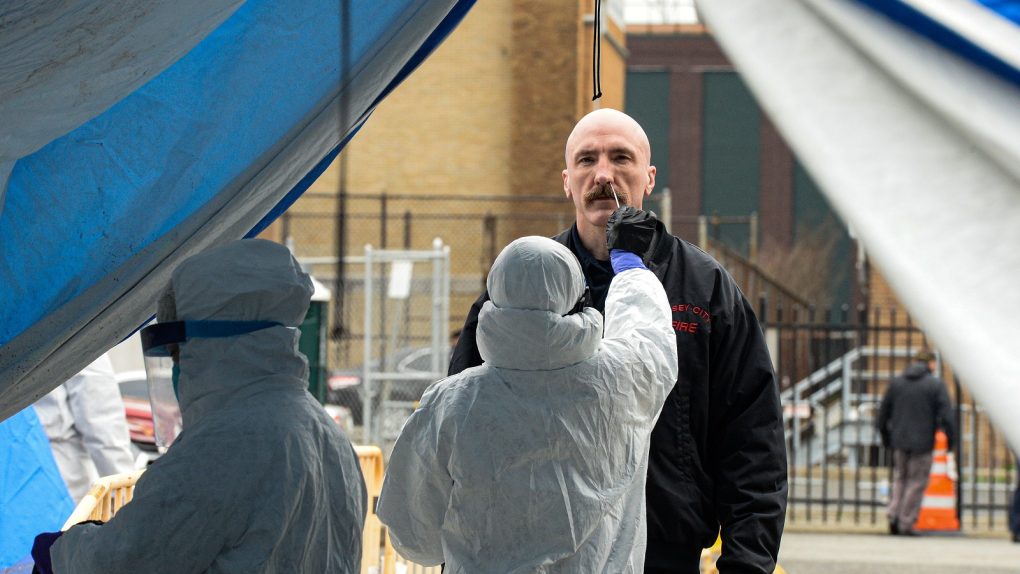- The FDA issued an Emergency Use Authorization (EUA) a few days ago to a brand new drug developed to treat coronavirus patients.
- The medicine is called bamlanivimab, and it’s an Eli Lilly monoclonal antibody that showed promise in clinical trials.
- A professor has explained exactly how the drug works and why it’s not effective in severe COVID-19 cases.
Bamlanivimab, also called LY-CoV555, is an oddly-named drug that some people might already know. It’s the new monoclonal antibody medicine that Eli Lilly devised to treat novel coronavirus infections. The drug showed mixed results in testing, including both promising results and disappointing ones. The FDA issued an Emergency Use Authorization last week for Eli Lilly’s new drug, detailing precise guidelines on how it can be used. The medicine can save lives until coronavirus vaccines are approved, but it won’t be useful for COVID-19 patients who already have severe complications. That’s because the drug has a particular purpose in the course of COVID-19 treatment and can’t deal with anything that happens after a patient reaches a certain point of no return.
Today’s Best Deal

Pfizer and Moderna have both announced that their vaccine candidates are more than 90% effective against the novel coronavirus. It’s only interim data for both experimental drugs, but the final results should be in by the end of the month. The vaccines could receive EUAs quite soon, and immunizations for high-risk individuals and healthcare workers might start as soon as December.
Until then, bamlanivimab might be our best shot at saving lives in many cases. The key to monoclonal antibody therapy’s success is that the drug has to be injected early for people at risk of developing complications down the road.
Northeastern University professor Mansoor Amiji explained exactly how bamlanivimab works — and how other coronavirus monoclonal antibody drugs work — as well as why it needs to be administered as early as possible after a positive COVID-19 test.
“The antibody is essentially a decoy for the human cell receptor,” Amiji said in a statement. The neutralizing antibody in bamlanivimab can target the spike protein of the virus. This would also happen after a plasma transfusion, and it’s exactly how COVID-19 survivors who are immune to the virus react. Vaccines will also trigger an immune response to the spike protein that includes the mass-manufacture of neutralizing antibodies.
Proteins in the drug can hook up to the SARS-CoV-2’s spike protein, preventing the virus from attaching to cells. The spike is the key element on the outside of the virus that allows it to enter healthy cells and multiply. By blocking the spike, bamlanivimab and other monoclonal antibodies will prevent the virus from replicating. As a result, the COVID-19 prognosis can improve and complications can be avoided.
But if a patient is already experiencing more severe complications, bamlanivimab won’t work. At that point, there’s too much virus in the body, and other therapies are needed. “The damage done by the disease on your lungs, for example, can’t be addressed by this antibody,” Amiji said. “It can’t address the consequences of infection.” For that reason, the bamlanivimab clinical trials involving severe COVID-19 patients were stoped, as were trials being conducted for a similar drug made by Regeneron.
The results are similar to blood plasma transfusions from people with COVID-19 immunity resulting from prior infection. Plasma can save lives if it’s rich in potent neutralizing antibodies and it’s administered early.
The Eli Lilly treatment will be available to anyone over the age of 12, according to the FDA. But doctors might choose to save it for those who are in the early stages of the illness and have serious risk factors that might lead to severe complications. People with comorbidities and those older than 65 could be the first in line to get the drug.
Amiji also explained the nature of the EUA approval for a drug that won’t work in every instance. “This wouldn’t be standard operations if the disease we were dealing with didn’t have such a high mortality rate,” he said. “The circumstances are very different when it comes to COVID.”
As for side effects, he explained that “antibodies are never going to be completely specific to one virus,” and it’s too soon to have the full picture of the side effects of this promising treatment. Still, the bamlanivimab approval is an exciting development for COVID-19 therapies, the professor said, adding that he hopes more treatments will be available soon.








